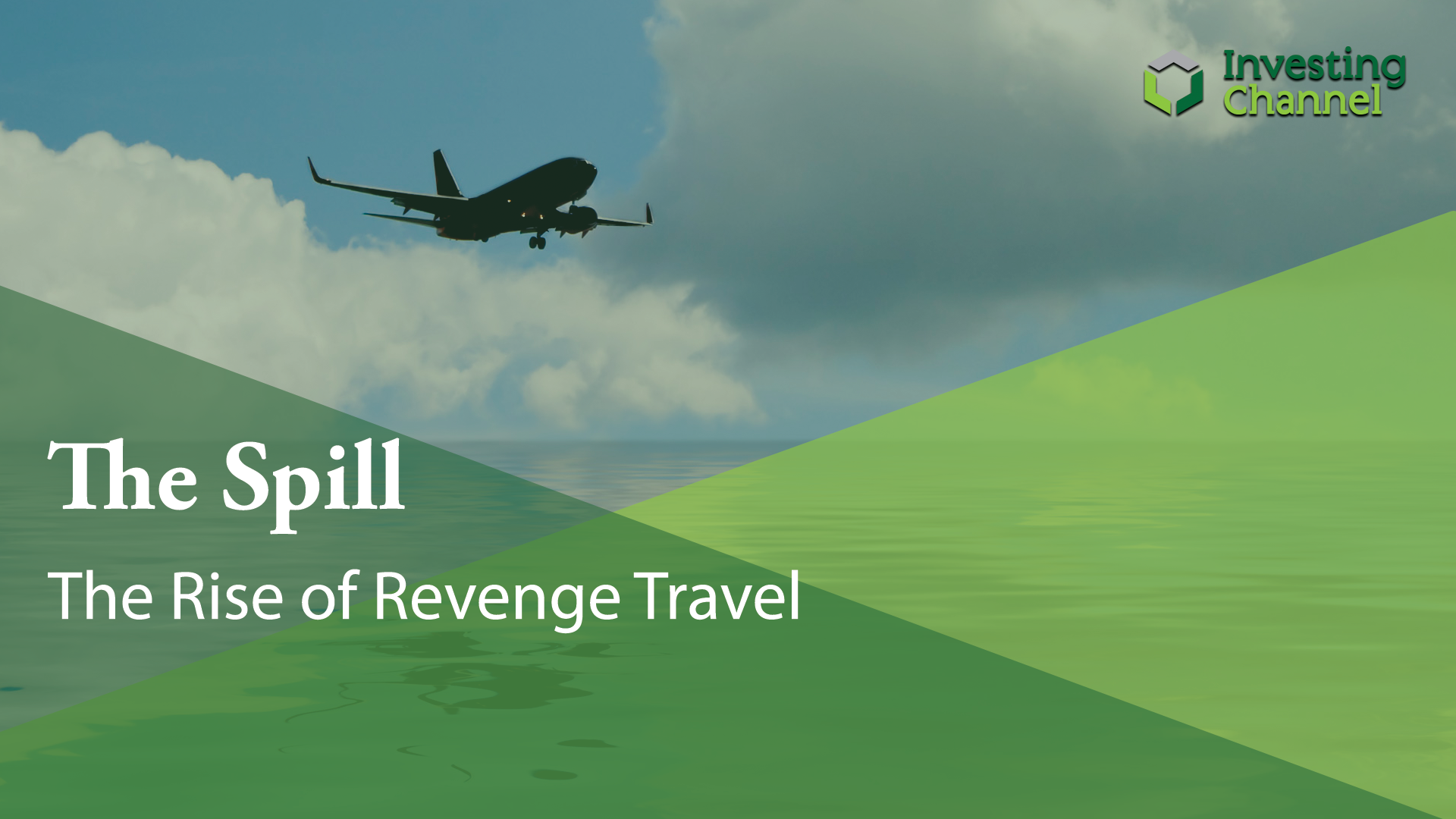The American Revenge Travel Surge: Is The Frenzy Finally Over?
The term "revenge travel" became a viral sensation over the last two years, capturing the collective yearning of a world emerging from unprecedented lockdowns and restrictions. Born out of the period when countries slowly started opening up their borders amid vaccination efforts, this phenomenon saw millions of Americans, and indeed people globally, embarking on long-delayed journeys with an almost defiant enthusiasm. If you felt like everyone you knew was traveling over the last couple of years, you weren’t imagining it; planes were full, hotels booked solid, and popular destinations overflowed with eager vacationers making up for lost time.
This surge was more than just a return to normalcy; it was a powerful expression of pent-up demand, a reclaiming of lost experiences, and a testament to the human desire for connection and exploration. However, as 2024 progresses, a crucial question arises: Is the American revenge travel boom over? New data and shifting economic realities suggest that while the fundamental appetite for travel remains strong, the frenetic, almost desperate pace of the "revenge" era may indeed be cooling off, ushering in a new, more measured phase for the travel industry and consumers alike.
Understanding the Phenomenon: What is Revenge Travel?
For those unfamiliar, "revenge travel" is the act of taking a trip that wasn't able to happen due to the pandemic. It’s a term that swiftly entered the global lexicon as the world began to cautiously reopen. Erika Richter, Vice President of the American Society of Travel Advisors (ASTA), succinctly defines it: “Revenge travel is a media buzzword that originated in 2021 when the world began to reopen, and people decided to make up for lost time.” It wasn't merely about taking a vacation; it carried an underlying emotional weight, a sense of reclaiming control and experiences that had been forcibly taken away. This psychological drive transformed ordinary travel into something more profound and urgent.
The Genesis of a Global Trend
The genesis of this trend lies squarely in the unprecedented global shutdown that began in early 2020. Borders slammed shut, flights were grounded, and even domestic movement was severely restricted. For over a year, many individuals and families found their travel plans—from honeymoons and family reunions to bucket-list adventures—put on indefinite hold. As vaccines became available and countries slowly started opening up their borders, a collective sigh of relief, coupled with an almost desperate urge to escape, fueled the initial spark of the American revenge travel surge. People had accumulated savings due to reduced spending during lockdowns, and the desire to spend that money on experiences, rather than material goods, became paramount. The mental toll of isolation also played a significant role; travel was seen as a vital antidote to pandemic fatigue, a way to reconnect with the world and with oneself.
The Peak of the American Revenge Travel Surge
The period from late 2021 through much of 2023 saw the American revenge travel surge reach its zenith. It was a time of unprecedented demand, where the travel industry struggled to keep up with the sheer volume of eager vacationers. Airlines reported record bookings, hotel occupancy rates soared, and popular destinations, from national parks to international hotspots, found themselves grappling with an influx of tourists. This was the era when tales of packed airports, sold-out flights, and exorbitant prices became commonplace. Travelers, undeterred by rising costs, were simply focused on making up for lost time, embodying the sentiment: "Revenge travel was sweet — and now we can’t stop."
A Nation on the Move: The Data Speaks
The data from this period painted a clear picture of a nation on the move. Airlines consistently reported passenger numbers nearing or even exceeding pre-pandemic levels. For example, TSA checkpoint travel numbers frequently showed millions of passengers passing through daily, a stark contrast to the ghost towns airports had become in 2020. Hotel chains saw their revenue per available room (RevPAR) climb steadily, often surpassing 2019 figures. Cruise lines, after a prolonged shutdown, witnessed a remarkable resurgence in bookings, particularly for itineraries that had been previously canceled. This surge was fueled by people taking trips they'd delayed at the height of the pandemic, converting years of pent-up wanderlust into tangible itineraries. The sheer volume of activity underscored the powerful psychological and economic forces at play during the peak of the American revenge travel surge.
The Driving Forces Behind the Unprecedented Boom
Several intertwined factors converged to create the perfect storm for the American revenge travel surge. Firstly, and perhaps most crucially, was the immense pent-up demand. After years of restricted movement, the desire to explore, reconnect, and experience new cultures was overwhelming. This wasn't just about leisure; it included postponed family visits, deferred celebrations, and long-awaited business trips. Secondly, many households had accumulated significant savings during the pandemic, as opportunities for spending on dining out, entertainment, and, crucially, travel, were limited. This created a financial cushion that allowed many to splurge on more ambitious or luxurious trips than they might have otherwise considered. The "YOLO" (You Only Live Once) mentality also played a significant role, with people feeling a renewed urgency to live life to the fullest after witnessing the fragility of normalcy. The travel industry, in turn, desperately needed the business, and travelers desperately needed to get out of town. This symbiotic relationship propelled the boom forward, as travel companies offered incentives and expanded capacity to meet the insatiable demand. The widespread availability of vaccines provided a critical layer of confidence, making international travel feel safer and more accessible, further fueling the American revenge travel surge.
Shifting Tides: Is the American Revenge Travel Surge Over?
While the initial burst of post-pandemic travel was undeniably robust, recent data suggests the frenzy may be cooling off. The question, "Is the American revenge travel boom over?" is increasingly being met with a cautious "yes" by industry observers and recent booking trends. The intense, almost desperate need to travel that characterized the initial surge appears to be dissipating, replaced by a more considered approach. CNN reported on May 24, 2024, that "The end of US revenge travel has arrived," citing a significant downturn in bookings for summer trips. This doesn't mean people have stopped traveling altogether, but rather that the specific, intense "revenge" dynamic is fading, giving way to more traditional travel patterns influenced by new realities.
Economic Headwinds and Consumer Hesitation
The primary drivers behind this shift are clear: recent economic shifts and global uncertainty are raising questions. Inflation has steadily eroded purchasing power, making everything from airfare and accommodation to dining and activities significantly more expensive. The rising cost of living, coupled with higher interest rates, means that discretionary spending, including travel, is often the first area where consumers cut back. Francisco Ayala and his wife, for instance, canceled the cruise they planned to take to see the Northern Lights this year, a clear example of how economic pressures are directly impacting travel decisions. Fear and uncertainty are big factors, not just economically, but also concerning potential new travel restrictions or global instability. The surge in American revenge travel has ended, with bookings for summer trips significantly down due to economic uncertainty and fears about travel restrictions. This widespread consumer hesitation marks a distinct departure from the "travel at any cost" mentality of the peak revenge travel era.
Beyond "Revenge": The Evolving Appetite for Travel
Despite the cooling of the intense "revenge" phase, it's crucial to understand that the underlying appetite for travel remains as strong as ever. Travel advisors say that while the idea of “revenge” has faded, the desire to explore and experience the world has not. That desire to get away has now lasted as long as the pandemic itself, as America continues to rediscover its sense of wanderlust. What has changed is the motivation and the approach. Instead of a frantic scramble to make up for lost time, travelers are now more deliberate, value-conscious, and perhaps more focused on meaningful experiences. This evolution signifies a maturation of post-pandemic travel, moving from an emotional reaction to a more sustainable and integrated part of life. People still want to travel, but they are doing so with greater consideration for their budgets, time, and personal priorities. This shift away from the urgency of the American revenge travel surge means a more discerning traveler, seeking authenticity and value.
Navigating the New Normal: Challenges and Opportunities for Travelers
For the average American traveler, the end of the intense American revenge travel surge presents both challenges and opportunities. The challenge lies in the increased cost of travel and the need for more meticulous budgeting. What might have been an impulsive booking during the peak of revenge travel now requires careful financial planning. Travelers must contend with fluctuating prices, potential surcharges, and the general inflationary environment that impacts every aspect of a trip. The days of simply booking without much thought to cost, driven by the sheer urgency to escape, are largely over. However, this new normal also brings opportunities. With demand potentially softening, there might be more availability for popular destinations and perhaps a slight easing of price pressures in certain segments. Travelers can now afford to be more selective, seeking out deals and planning further in advance without the fear of everything being booked solid.
Smart Travel in Uncertain Times
In this evolving landscape, smart travel becomes paramount. This means prioritizing flexibility, considering travel insurance, and being acutely aware of cancellation policies. Budgeting effectively, perhaps by choosing shoulder seasons or less conventional destinations, can yield significant savings. Leveraging loyalty programs, credit card points, and travel agent expertise can also provide an edge. Furthermore, the emphasis is shifting towards experiential travel – focusing on unique, authentic encounters rather than simply ticking off popular landmarks. This aligns with the deeper desire for meaningful experiences that emerged from the pandemic. Travelers are also becoming more conscious of sustainable travel practices, seeking out options that minimize their environmental footprint and support local communities. The end of the frenzied American revenge travel surge allows for a more thoughtful and responsible approach to exploration.
The Travel Industry's Adaptation: What Comes Next?
The travel industry, having ridden the high tide of the American revenge travel surge, is now adapting to these shifting consumer behaviors and economic realities. Airlines, hotels, and tour operators are re-evaluating their strategies, moving away from simply managing overwhelming demand to focusing on value, customer retention, and diversified offerings. This might include more flexible booking options, personalized travel experiences, and a renewed emphasis on domestic travel as a more affordable alternative to international trips. The industry is also investing heavily in technology to streamline processes, enhance the customer experience, and provide more tailored recommendations. As the initial "revenge" motivation wanes, companies are working to foster a sustained appetite for travel by highlighting unique experiences, promoting sustainable options, and addressing the new economic concerns of their customer base. The focus is no longer just on getting people to travel, but on ensuring they have positive, memorable experiences that encourage repeat business, even in a more challenging economic climate.
Expert Insights and Future Outlook
According to experts like Erika Richter from ASTA, while the "revenge" buzzword may fade, the fundamental human desire for travel remains robust. The frenzy of heightened “revenge travel” activity that started after pandemic restrictions lifted had a specific lifespan, tied to that initial burst of freedom. However, the underlying wanderlust that drives Americans to explore has now lasted as long as the pandemic itself, indicating a more permanent shift in priorities for many. The future of travel will likely be characterized by resilience and adaptation. We may see a continued trend towards longer, more immersive trips for those who can afford them, and a greater emphasis on value and efficiency for others. Domestic travel will likely remain strong, offering accessible and often more affordable options. International travel will continue, but perhaps with more strategic planning and a greater focus on specific, bucket-list destinations rather than impulsive trips. The industry will need to remain agile, responding to economic fluctuations, geopolitical events, and evolving consumer preferences. While the intensity of the American revenge travel surge has subsided, the fundamental joy and necessity of travel endure, shaping a new, more mature chapter for global exploration.
Conclusion
The American revenge travel surge was a remarkable phenomenon, a powerful testament to human resilience and the deep-seated desire for connection and exploration after a period of unprecedented isolation. It saw planes full, hotels booked solid, and destinations overflowing with eager travelers making up for lost time. However, as recent data and economic shifts indicate, the frenetic pace of this "revenge" era is indeed winding down. The end of the initial surge, marked by economic uncertainty and a shift in consumer priorities, signals a transition rather than a complete cessation of travel.
While the urgent, almost defiant "revenge" element may have faded, the underlying appetite for travel remains as strong as ever. Americans continue to rediscover their sense of wanderlust, albeit with a more discerning eye and a greater emphasis on value and meaningful experiences. The travel industry is adapting, and travelers are becoming savvier, navigating a landscape defined by economic headwinds and a renewed appreciation for thoughtful planning. As we move forward, the focus will be less on "making up for lost time" and more on creating new, enriching memories. What are your thoughts on the evolving travel landscape? Have your travel plans changed recently due to economic factors? Share your experiences and insights in the comments below, and explore other articles on our site for more travel tips and trends!

107307933-1695878067789-gettyimages-1293977282-06252020.jpeg?v

The Rise of Revenge Travel | by InvestingChannel | Harvest

The Rise Of "Revenge Travel" - Live and Let's Fly